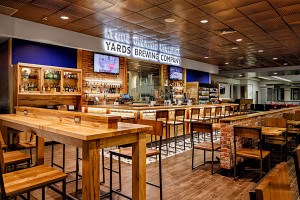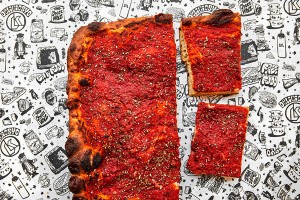Food for Thought: Stay in the Kitchen
There was a time when a chef’s work was solely in the kitchen; it was only when a diner asked to speak to the man wielding the whisk that he would, reluctantly, appear in the dining room.
But not too long ago, things changed: People began coming to restaurants for the chef — they wanted to see him, to meet him, to know he was the one cooking their food. The age of the celebrity chef had dawned. George Perrier was a master of this way before it became expected. He works his dining room, lavishing attention on VIPs and regulars, fielding questions about his cuisine and shaking hands, leaving tables feeling special, cared for, and a little bit starstruck.
In the past few years, though, this practice has filtered down to chefs of all levels of achievement, especially at new restaurants helmed by young chefs with big ambitions. But something has been lost in translation. On a few recent visits to some new BYOs, I’ve encountered unknown chefs appearing unbidden from the kitchen, clearly nervous, often sweaty, and occasionally reeking of cigarette smoke. Instead of feeling like a gift for the diners, these visits often felt like the chef was fishing for compliments: “I hope everything is to your liking,” they would say, and “How did you feel about your scallops?”
This was once the job of the maitre d’ or GM, or even, in smaller restaurants, the savvy host. But now that the chef feels pressure to make the rounds, the whole exchange can be as awkward as when someone asks “Do I look fat?” And, I think, it is meant to put the chef — not the diner — at ease. Who in their right minds will be honest with criticism in this situation? “Actually, chef, the scallops were rubbery and overcooked. Perhaps you should return to the kitchen and keep an eye on them.” If you didn’t truly love the food, you basically must lie.
The conversation always ends with the chef’s thanks: “We’re so happy to have you tonight. We hope you’ll come back!” Even this can be awkward. What are you, the diner, supposed to say? Are you supposed to thank him back? For his cooking? For his time? For his forcing you to make small talk as your $28 entrée gets cold?
What really makes diners feel appreciated is perfectly executed food and professional, gracious service. If a chef is successful enough, he’ll know when the time has come to leave the stove and greet his public. Fans will start requesting an audience. Until then, chefs should never assume that the rest of the diners want his company. Let’s hear what you think in the comments.


